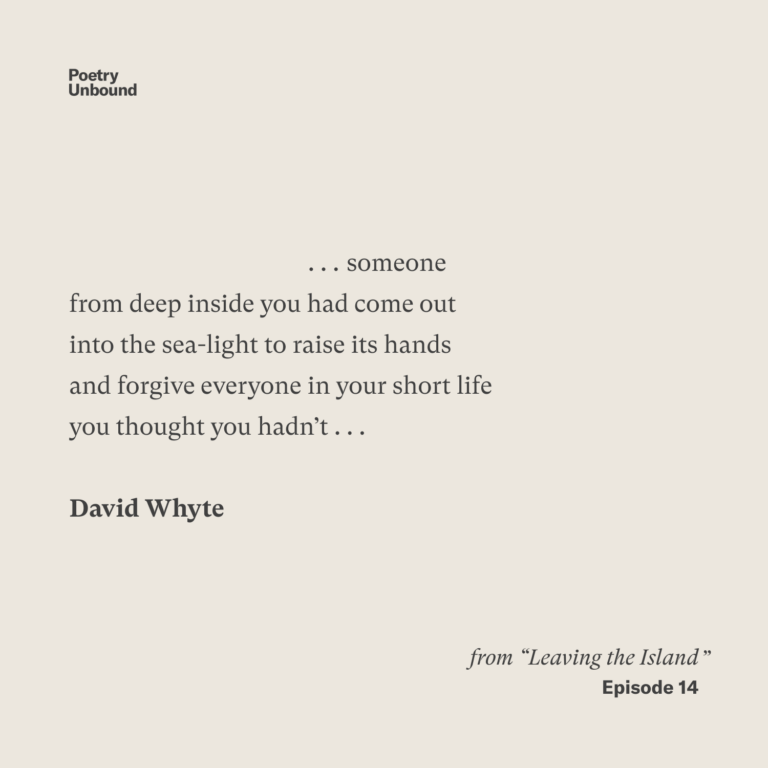Leaving the Island
It must have been
the slant of the light,
the sheer cross-grain of rain
against the summer sun,
the way the island appeared
gifted, out of the gleam
and the depth of distance,
so that when you turned
to look again,
the scend of the sea
had carried you on,
under the headland
and into the waiting harbour.
And after the pilgrim lanes,
and the ruined chapel,
the lads singing beneath the window,
and the Corn-Crake calling from
a corner of a field,
after the gull cries and the sea-hush
at the back of the island,
it was the way, standing still
or looking out,
walking or even talking
with others in the evening bar,
holding your drink
and laughing with the rest,
that you realized–part of you
had already dropped to its knees,
to pray, to sing, to look–
to fall in love with everything
and everyone again, that someone
from deep inside you had come out
into the sea-light to raise its hands
and forgive everyone in your short life
you thought you hadn’t, and that all along
you had been singing your quiet way
through the rosary of silence
that held their names.
Above all, the way afterwards,
you thought you had left the island
but hadn’t, the way you knew
you had gone somewhere
into the shimmering light
and come out again on the tide
as you knew you had to,
as someone who would return
and live in the world again,
a man granted just a glimpse,
a woman granted just a glimpse,
some one half a shade braver,
a standing silhouette in the stern,
holding the rail,
riding the long waves back,
ready for the exile we call a home.
David Whyte, Leaving the Island, from The Bell and the Blackbird. © 2018 David Whyte. Reprinted with permission from Many Rivers Press, Langley, WA www.davidwhyte.com.

